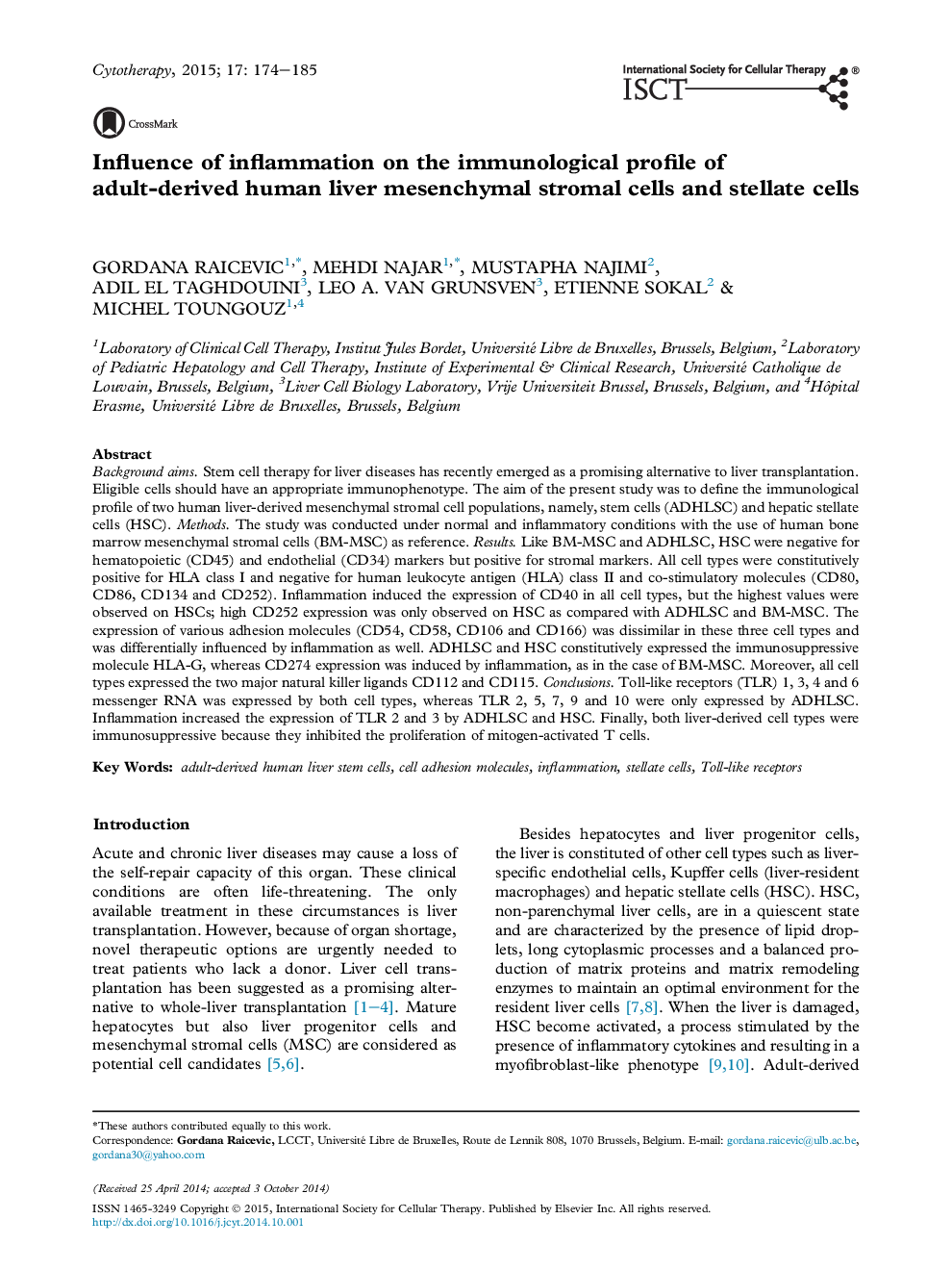| کد مقاله | کد نشریه | سال انتشار | مقاله انگلیسی | نسخه تمام متن |
|---|---|---|---|---|
| 2171824 | 1093504 | 2015 | 12 صفحه PDF | دانلود رایگان |
Background aimsStem cell therapy for liver diseases has recently emerged as a promising alternative to liver transplantation. Eligible cells should have an appropriate immunophenotype. The aim of the present study was to define the immunological profile of two human liver-derived mesenchymal stromal cell populations, namely, stem cells (ADHLSC) and hepatic stellate cells (HSC).MethodsThe study was conducted under normal and inflammatory conditions with the use of human bone marrow mesenchymal stromal cells (BM-MSC) as reference.ResultsLike BM-MSC and ADHLSC, HSC were negative for hematopoietic (CD45) and endothelial (CD34) markers but positive for stromal markers. All cell types were constitutively positive for HLA class I and negative for human leukocyte antigen (HLA) class II and co-stimulatory molecules (CD80, CD86, CD134 and CD252). Inflammation induced the expression of CD40 in all cell types, but the highest values were observed on HSCs; high CD252 expression was only observed on HSC as compared with ADHLSC and BM-MSC. The expression of various adhesion molecules (CD54, CD58, CD106 and CD166) was dissimilar in these three cell types and was differentially influenced by inflammation as well. ADHLSC and HSC constitutively expressed the immunosuppressive molecule HLA-G, whereas CD274 expression was induced by inflammation, as in the case of BM-MSC. Moreover, all cell types expressed the two major natural killer ligands CD112 and CD115.ConclusionsToll-like receptors (TLR) 1, 3, 4 and 6 messenger RNA was expressed by both cell types, whereas TLR 2, 5, 7, 9 and 10 were only expressed by ADHLSC. Inflammation increased the expression of TLR 2 and 3 by ADHLSC and HSC. Finally, both liver-derived cell types were immunosuppressive because they inhibited the proliferation of mitogen-activated T cells.
Journal: Cytotherapy - Volume 17, Issue 2, February 2015, Pages 174–185
